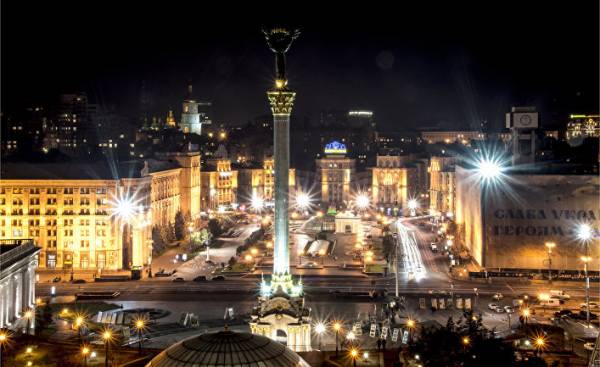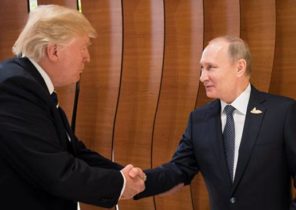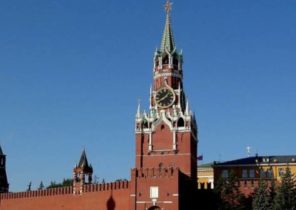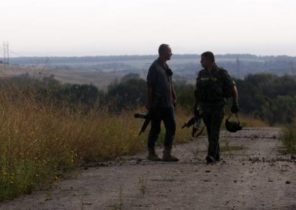
“Every present has its own future, which illuminates it, and which disappears with him, becoming past-future”.
Jean-Paul Sartre
In one of his recent articles Francis Fukuyama, referring to the victory of Donald trump, said: “I as a scientist will be very interesting to follow the presidency Trama: it will allow you to check how strong the authorities in the United States… none of the leaders of the United States never opposed the entire system and did not want to undermine existing rules and regulations. Thus, we have entered the era of the great natural experiment, which shows that controls the United States: laws or people.”
This is true not only for the United States — the whole world enters into such local opposition. However in each case it has its own unique accent. But in terms of political culture would be a grave simplification to say that it is only a question of who is stronger: the political system (with a hundred years of history and practices) or the will of the individual? Actually the question should be put more widely — the crisis of the classical model of relations between government and society (or, perhaps, on the contrary, society and government) in a modern democratic society.
The revolt of “ordinary people” against the “political system”
“Again, some demonstration, banners, posters, music and someone in the woods, who for firewood, hundreds of SIP: — get Up, get up, work people! Voice guttural, primal… the Romans put it to the convict stigma: Cave furem (Beware of dog, used as a warning in approx. ed.). These persons are not necessary to put — and without any stigma of all of it.”
Ivan Bunin. “Cursed days”
It seems that we are entering a period when the so-called “ordinary citizens” (i.e., usually conservative, mostly without higher education) decided that has emerged over the last 20-30 years the liberal democratic political system (together with formed around it by the political class) explicitly ignores their interests. Their countries are “not there.” What leaders do “the wrong questions” and “wrong.” What economic benefits produced by “ordinary people”, are redistributed in favor of those who don’t deserve it.
Victory Trump provided this class: living in small settlements, often finding themselves in a dynamic modern economic processes. And that such “ordinary Americans” (i.e., simplistically perceiving a complex reality and so entangled in politics and in society and in ourselves) demonstrated an unusually high turnout in the last election, which led to the victory of trump. Trump, who impressed them with rhetoric, mixed with simplicity and directness. Rhetoric, which is familiar and attractive to men and women of “middle” America that the Republicans have traditionally addressed their campaign.
This contradiction between the classic “blue collar” in the post-classical world, on the one hand, and creative “white collar” high-tech era, on the other, seem to have reached a certain “point of no return”. It is if you want the new version of the class struggle.
“Unlike murder, once committed, to hate means to kill continuously, erasing from the face of the earth, whom we hate” warned Jose Ortega y Gasset. Modern Western analyst Joan Williams in his article on this new topic of the day says a lot about how the Democrats have been unable (or unwilling) to hear the voice of “ordinary people”. However, what is more important is these words of this article as “anger”, “hatred” and “contempt” — all to all. These emotions become the key to victory Trama. The deterioration of the economic situation, and the hatred and feeling of injustice. It is they, ultimately, led to a crisis in relations between the liberals and conservatives, and on a purely domestic level. But it seemed that the problem (internal ideological rivalry) seems to be no more, but cost Russia a little information and “stir” it, and it turned out that instead of the burnt ashes — hot coals, only slightly sprinkled with ashes.
Still, the problem is much broader than the results of the elections in the United States. This is just one of the fronts of the problems faced by the entire Western world: the contradiction between the challenges faced by the West (large-scale migration, falling economic growth, strengthening external actors of international relations), and how these challenges have reacted to the political elites — the “quality” of this answer creates the “ordinary people” is a strong feeling that at the helm of those. Hence the rapid growth of populists, playing on these feelings and offering “simple” solutions: “evict” workers, to build roads, to take a proactive stance towards developing countries. What these “solutions” are ineffective, “ordinary people” interested in a little — in fact, they need hope. Hope that everything will return to as quite speculative “happy period”, which was for them the period of 1970-80-ies.
Marine Le Pen in France, Petri Frauke in Germany, Geert Wilders in the Netherlands, Beppe Grillo in Italy and many other forces around the world — they all share an understanding of this trend and willingness to use it. Russia, also realizing this trend and are largely asking him important key, ready to turn to cast/use those who uses/plays. And the only thing that’s holding back the rapid procession of these “new leaders” (as correctly noted by Fukuyama), is “the law”. It is the law (in the broad sense of the word) is under the greatest pressure of the pressure in this confrontation. Will stand it the voluntarism of individuals? Or will put them at the service? Can one person completely change the course of the state, or is “tradition” and “rationalism” (coupled with the inability to consolidate in the hands of all the power) will be a reliable barrier to such desires?
By the way, this path in the politico-judicial impasse we have gone from 2010 to 2013. And we know what happens when the “law” turns out to be suppressed by force “of the individual” if he wants to change course to the opposite. The problem lies elsewhere: how far are willing to go democratic citizens, defending our values? Whether they will go as far as went to the Ukrainians?
European strategy of the Kremlin: “priests Gapon” on an international scale
“We did not make a scandal, we lacked the leader! This little violent, that no leaders!”
Vladimir Vysotsky. “A letter from the madhouse”
However, the listed European politicians-populists are United not only by a desire to take a global revolt. It connects them all, another link, which is impossible to miss — the Kremlin. The Kremlin, which is also understand, “where the wind blows”. The Kremlin, which understood that a relatively inexpensive aftershocks through the media this cautious protest can turn into an uncontrollable flood, and he began to do with 2008-2009 And political forces, not years, but decades were marginalized in the political processes being what is called “non-systemic political movements”, whose popularity is measured by hundreds of followers, suddenly began to gain political weight, which now leads to the defeat of the elites in power for 30-40 years.
And Russia today, as before, increasingly like a parasite on the ideas/concepts of inequality — opposing the “decadent capitalist West” tuning “brave new world” and developing this new version of “the Communist international”. Slogans and cliches are all the same, style is eternal “struggle for peace”, “protect the oppressed” (in Syria), “compatriots” (Ukraine) and “international aid” add-on (ibid.). “We are on the mountain all bourgeois world in flames blow up”. This work with “ordinary people”, these impose their “simple” interpretation, these “alternative facts” in “an alternative information environment” work effectively with the Western layman.
In this sense the Netherlands, where, apparently, not crucial for the Dutch public question was played concerning the Russian structures “activists” like clockwork. The Dutch, who are rather removed from the realities of Ukrainian and Ukrainian problems, he was quickly able to convince a few simple thoughts. That Ukraine has a surplus of corruption that the signing of the Association Agreement will be a milestone for Ukraine’s accession to the EU that the Agreement would harm relations Holland and Russia, etc. the Whole set of Russian clichés about Ukraine was effectively and in a short time embedded in the information space of the Netherlands. And we know the result. Populist, conspiracy, disinformation calls Pro-Russian activists and the media suddenly found the broadest support from “ordinary Dutchman”. Because these calls are not needed to analyze, did not have a lot of them think they “played” in the mood, which Mature in Europe, are maturing in the West). The Netherlands and here is just one example.
But they are becoming more. And each “information stuffing”, each new support for the Kremlin a variety of anti-European, “alternative”, “evroskeptichnuyu” political parties, movements, groups — all this adjusts (or rather clarifies) the European political landscape, changes the desires and aspirations of the electorate. So, Yes, Moscow really interfere in the politics of Western States. Intervenes actively. In a big way. And actively uses these trends in their influence operations. In his attempt to impose the West’s hybrid war in its rules. You could even say that the role of Moscow in this case, is concentrated in two points: to feed the above mentioned hatred of “ordinary people” and give this hate a chance “to lead” through the point of focus of the leaders of these movements. This Moscow and busy — it gives inner protest of the Western world, a point of focus, leaders who become more populist than the most radical populists.
Why is this intervention successful? First of all, because the West still can not believe that a world that is more than 20 years ago, it seemed, resolutely left from the horrors of the cold war, suddenly made a circle and returned to the world of “postpreda, Potthapada, pastorage” (as accurately described by the Wolfgang Ischinger at the annual Munich conference on security issues). However, even here we see an attempt to “cover up” unpleasant to our Western partners the reality. Talk about “PostPage” or “alternative facts” is possible only in one case — if you are afraid to say aloud more clear and familiar words: lies, propaganda, misinformation. Likewise “the world of Potthapada” it’s something that can be described as “a world in which the West and all its democratic practices challenge — external and internal.” The world of “pastorate” is not some strange entity; it is a world in which States again violate international law and are going to do it in the future.
The situation with Europe’s reaction to the new-old challenge strongly resembles the first stage of the classic experiences of the changes (mostly stressful). So Europe seems to be still stuck at the first stage — shock, which is accompanied by denial. The denial that this is even possible. Denial that the situation has changed dramatically and will never be the same. The completion of this stage requires self-honesty with what the politically correct Europe clearly have problems. But without such adoption, Europe can not move on to other stages, including real behavior change. And yet this “denial” plays into the hands of Russia, which still further sustains it by all possible means the idea that there is no interference, nothing has changed, and if changed, then everything can quickly be back on track.
Classic French and world literature Charles Baudelaire (“king of poets”, as he talked about him the other French classic Arthur Rimbaud), just noticed that “the most sophisticated trick of the devil is to assure you that it does not exist.” Here we have a very similar situation. But then the price of confidence in “the absence of the devil” — the very survival of the West, as he explicitly challenged. The threat of ISIS (banned in Russia ORGANIZACIJA — approx. ed.), the threat of migratory flows and dozens of other “threats” is a derivative or ancillary processes such a call. The ISIS though has the aim of “world Caliphate” is built on cruelty and violence, but even in the Muslim world, the number of supporters of this idea isn’t that great. Migrants, no matter how large-scale their movements, don’t set yourself a goal (goal conscious, aware) to destroy the West itself.
But Moscow is able to deliver such a goal, and even try to achieve its execution. Including — hands of ISIS, hands of migrants. However, this can be achieved only by neobeckia and only in the case that the West (as Ukraine until 2014) will studiously pretend that this problem simply does not exist. And although the world is constantly declares his “concern” that Moscow intervene in political and electoral processes around the world (including operations in cyberspace), but also we need to recognise that these concerns are still not go beyond idle talk. It seems to be created by a variety of research centers dedicated to this issue, the written texts of resolutions…
But there is no feeling that the West is really willing to admit simple, but no less alarming (who, incidentally, was understandable in a similar situation in the mid-80s): Moscow will never abandon its programmes of destabilization, since the basis of this activity are two resources — money and command system, in which the main role play special services (moreover, the number of these representatives is constantly increasing). You can talk about the fact that the authorities in European countries eager “agents of influence” of Moscow, which again involved all sorts of “society of friendship” and “movement for peace” that propaganda and misinformation (as well as forgery) is back on the agenda (and returned with a new force, armed with modern technologies and techniques), — all this is understandable. The problem is in the unwillingness of the West to admit that the answer to such aggression lies in two planes, to a certain extent competing among themselves.
The first way — to become “dragons” and fight the aggressor not just equal, but using its much greater economic potential. This is what a democratic country most afraid (and even started a movement in this direction), since becoming the many small likes of Russia does not want one. And without that to contend with specific methods of the hybrid of aggression is almost impossible — it’s a constant process of restrictions for not less than a constant action of the Kremlin to inventing new “relatively fair” ways to take advantage of the democratic model to their advantage.
The second way is economic the destruction of the aggressor. And this is exactly what has largely been done in his time with the Soviet Union. The West somehow quickly forgot that the Soviet Union was due, of course, a wide variety of complex processes, but the key was the economy. The USSR simply could not race with the Western world, explicitly “torn”. Yes, for citizens of the USSR factor “greatness” was more significant than the lack of goods on the shelves, but also — to a certain limit. To think that an empty fridge would be regularly broadcast on TV greatness, is much harder when you see that other countries somehow have both.
Today Moscow faces a similar problem: they managed to return to the discourse of greatness, but it describes people who are not faced with nodevisitor (although movement in this direction and observed). Therefore, the question of “remove” or “remove” sanctions are, in fact, not a question of efficiency, not a matter of need “to restore relations” with Russia, not the Ukraine, if you want. In fact, it is very simple and straightforward question, the answer to which may give only the West whether he wants to become authoritarian itself a party to the international processes (as an option — quietly and without fuss to give up much weaker, but politically active) or defeat the aggressor. The question is very simple. However, the answer will have huge geopolitical importance.
Of course, the choice of the second way (economic) does not mean that you have to forget about strengthening national security, to re-deploy the full power of the system intelligence and counter-intelligence activities. In this context, the discussion at the annual conference in Munich on security issues regarding having 2% or 3% of GDP should be allocated for the national security of NATO members, is not a question of numbers. It is a question of the lack of this (I would like to emphasize this — that the real, not declared) understanding the threats facing the democratic world today.
If today is above all a European country begin to increase their spending on the sector of security and defense, if not will invest resources in counterintelligence, if you will not invest funds in their own tools for strategic communications — tomorrow the military component of hybrid warfare will come to the European house, as it came to Ukraine. You can laugh (or wonder) ideas like the construction in the Park “Patriot” in Kubinka the layout of the Reichstag, but it is much more clear signal to the West that the Kremlin is preparing him in case of further policy of “search for understanding”. Even unclear how the Kremlin needs to convey to Europeans, their key idea — a world that he sees is perfect, this is the world of the cold war (and new terminology — a world of hybrid warfare)?
Ukraine: political memories about a democratic future
“Not true oppresses and opposes, but the greater the desire to deal with it.”
Skovoroda
Ukraine is in this broader context is in a strange situation. What we do now is not just a fight for our survival, for our independence. It is precisely the protection of modern values, which would have to engage the West. But not engaged for the reasons described above. However, to do this “cult” and the basis of the story about our “special mission in the world” still not worth it. In fact, we can and must speak about necessity of formation (based on reality) is quite simple, but understandable and rational strategy of foreign and domestic policy of the state: our main goal is simple and specific — to survive in this war; the second task is to get out of it stronger than we were at the beginning; the third is to teach to fight those of our partners who want to learn; and the fourth is to unite with those who are willing, like us, to resist.
The latter is really important because those who do not want (it “wants” and not “can not” — the difference is very significant) to confront geopolitical bully for the sake of illusory hopes that if he “give in” to what he wants, then everything will calm down, — our ways. Just because we understand the danger of this bogus “solutions” — we were already the last 20 years. And we know that this is actually not a solution at all. It should be clearly understood (although it’s already been mentioned) — the enemy will not accept it. Never. Rather the opposite — aktiviziruyutsya.
A striking example is the invasion of different Amateurs from international relations that I decided to do much good for Ukraine, a whole series of peace plans. All these “agents of influence” of different levels of involvement and different levels of preparedness like a herd of Trojan horses began to prance on our political platform, hoping that at least one of them will be able to “enter the gate” Ukrainian “fortress”. We offer the “forget about Crimea”, that “to hold elections under the supervision of Russian troops”, “to reconcile and not to excite the public” — these plans will become more and more. The goal of the “plans communities” — to convince Western partners that the solutions are there — just “intractable” Ukraine does not want to look for them.
A little sad, however, from the level of agents, which sets in motion the Kremlin. One former financial machination with so colourful political career, which would be the envy of Bender. The other — the ex-tycoon who wants to return to the “big game”. American “peacekeepers” is also no better. Lighted in the noble cause “to bring Ukraine peace” at the cost of Ukrainian of the Crimea American lawyers, on closer examination, turn out to be such “sunspots” that are more like another famous “lawyer” and “friend of Ukraine” — Vladimir Zhirinovsky.
However, the real result of the implementation of any of these “plans” will be the loss of us not part of Ukraine, not “certain areas”, but throughout the country. Entirely. Because any attempt to “agree” with the aggressor (even indirectly) will lead to a massive political crisis. In addition, processes, which we discussed in the beginning of the article (the movement of “ordinary people”), Ukraine was always relevant — it is not accidental that the overwhelming majority of Ukrainian parties (even the party of big capital, which was the Party of regions) has always been more leftist parties than right-wing. The request is simple and clear solutions we see today. “Blockade” ways, the “Maidan-3” requirements “to call a war a war”, “martial law” — all of these examples of “magical thinking” do not go off the agenda. And used by the aggressor. Used on a large scale, with visible pleasure, with knowledge of the matter. Undermining our unity, our willingness to resist in the “long war” without clearly defined rules.
And Moscow is active in this direction. After the failure of attempts to establish “new Russia”, the Kremlin has gone on the other hand, “self-destruction of Ukraine as a state”, the first step of which is total randomization of Ukrainian life. All the main areas. One of them is above the international (through the abundance of “plans to end the war”), more economic (including through the increasing complexity of economic relations within the country), the third — political (campaigning for re-election and all). And such areas very much.
With many of these challenges we can handle. But not all. And this is exactly the problem which is still not resolved under the security sector reform and defense. And although our Western partners all these years, we actively helped in this area, but to say that problem areas remained, it would be an exaggeration. However, despite this we should all clearly realize that we weren’t contributors, and donors safe. Moreover, both regional and international.
Another question that we began with them against their will, but only as a product of our main job is to win the war for the survival of the Ukraine. However, this does not mean that we don’t have to use it in their foreign policy actions. Yes, the Munich conference showed that Ukraine is not in the focus of international attention, there are other concerns and interests, which are rapidly replacing the situation on the second and third plan issues.
And those are right who say that if we want to continue to attract the attention of the West to our questions, we must seek new forms. We need to show that we are the solution, not the problem itself. But just as true (and I say this almost every time) — we can not (and should not) be dealt with only in to seek, as much as we “like the West”. We need a proactive position on the basis of a new reality. And for that, we have the necessary prerequisites. Today we have already gone much further than our Western partners in addressing these challenges.
Yes, our context is somewhat different from the Midwest (including the level of development of the economies, the level of self-awareness on the challenges for the labour market), and Yes, we have passed this way not completely. But our example demonstrates what happens if Russia does not provide time resistance. What happens if you give her the opportunity “to settle down” you have to sponsor politicians, forming at its discretion, your information space, stretching for public office and their agents of influence (which begins to ruin the system of public administration from the inside). We’ve all been there and paid a very high price for their gullibility and unwillingness to look at the world through rose-colored glasses. We are ready to do everything for the same price did not have to pay first Europe and then around the world. The key to this is our unique experience of confrontation hybrid aggression.
You can talk endlessly about the fact that “all of this has once against someone used”, but almost never as a totality. And even if you look at historical precedents, there is not just what we’re facing cyber attacks on critical infrastructure, the use of energy weapons and more. Especially that “hybrid war” from the simple “use of a set of methods” features a small but important point — the existence of clear political and military decisions of the aggressor, and therefore the methods used are not of a chaotic nature, but integrated into a single logical circuit. And so to counter this integrity we have learned. And we have much to share in this area with our partners.
Therefore, it is around the community wishing to learn to resist the aggressor may need to build on our new alliances (or strengthen old). In addition, in conditions when the game is not on regional but on a global level, we can no longer leave, for example, the Asian direction as a secondary. China, India, South Korea and other countries should return to the focus of our present attention. Not declarative, but real. Let the first line of the economization of relations, but we need joint projects. It is impossible to fight with the enemy only in his field — it is necessary to expand the space, you need to “stretch” his powers, although our primary hope is, of course, our army and our security sector, but the second tier is the creation of conditions in order for the enemy “ruptured”.
Today we do face global migration processes. But not physical (how large masses of people), which today disturbs the European capital. Migration ideologies, the emergence of new ideological “faults” in those places which seemed to be securely “closed.” Conservatism in the form of rabid populism goes to the “warpath” and, as you progress, gaining new supporters. Under this roller are all familiar to us the democratic procedures and forms of organization of the state.
It turned out that they can be used with equal efficiency against the States and their stability. While J. Ortega y Gasset said that “the fate of democracy in any form and level of development depends on the fine technical details of the election procedure. The rest is secondary,” but now we see that sometimes elections are a factor that leads to the power of people seeking that democracy itself to destroy. Completely. And really who better than Europe to know…
However, I would not prematurely dismiss “the law”. An example of a fairly major transformation of the rhetoric of trump after the election and under pressure from the first to the public, and then their own supporters, the need to reckon with certain procedural points, and the ability of intelligence agencies to operate with the maximum distancing himself from the political preferences of the current leadership of the country — all this speaks of that “law” can have their say. That does not negate the main thing: “vigilance” (companies, scientists, experts, security sector and defense), it seems, from a background of concepts becomes an actual part of everyday life.







